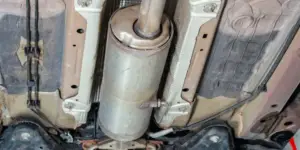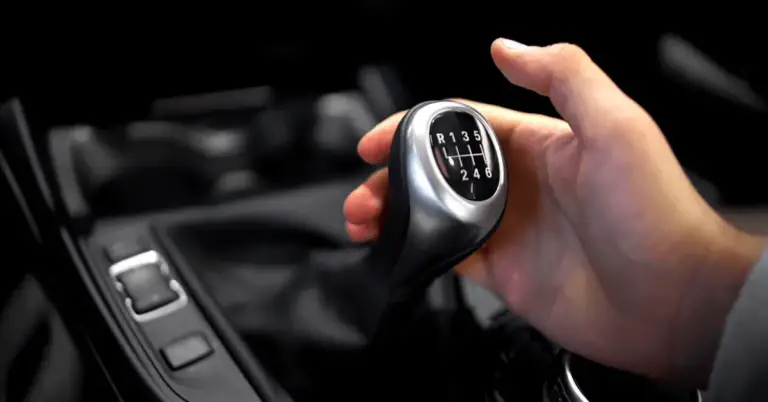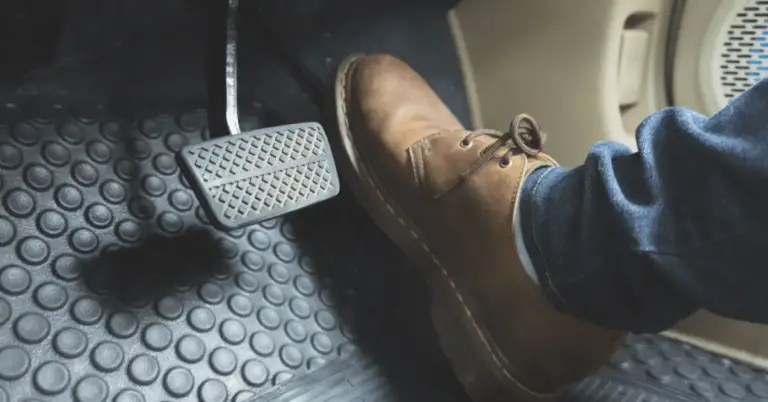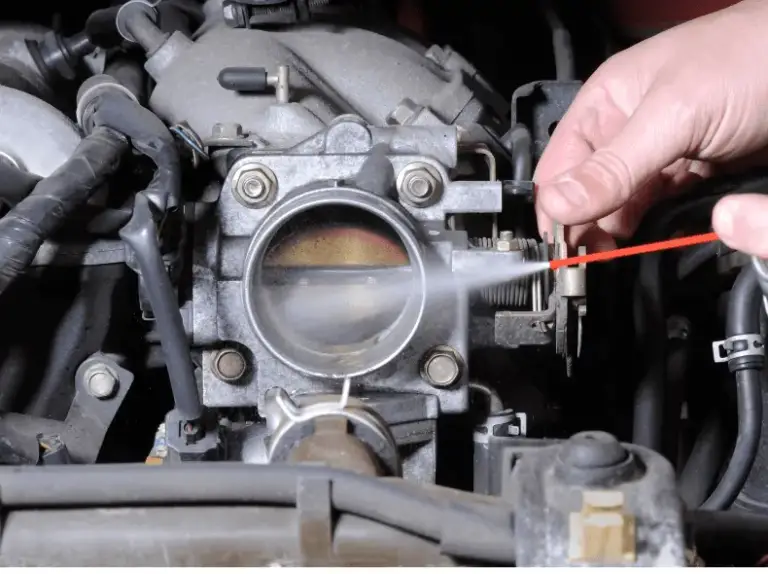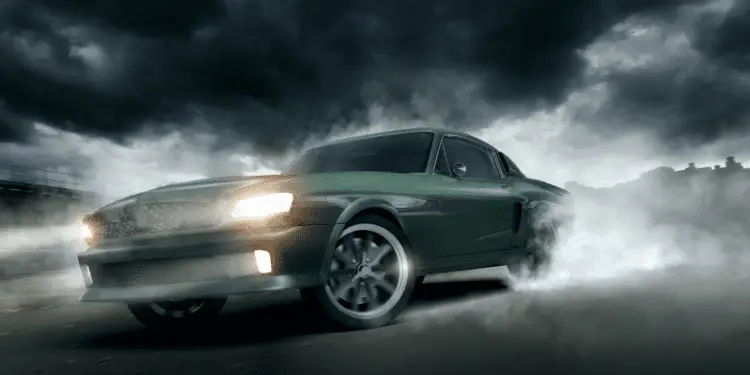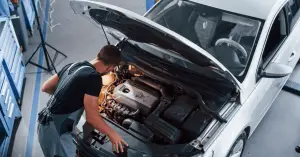
Attempted to start your car with the engine already running? Don’t worry. We’ve all been there. All it takes is a momentary lapse of attention. When it happens once or twice, you may be able to recover. If you let it happen too frequently, you could cause long term damage to the engine But, what happens if you start a car with the engine already running?
If you start a car with the engine already running, your starter motor will still attempt to start the engine. However, since the engine is already running, the gear on the starter will instead hit the moving flywheel attached to the engine. This will cause a loud grinding noise, and it may damage the starter motor or flywheel.
On this page, we’ll tell you why it is important you don’t attempt to start the car with the engine already running. We’ll also let you know the rough cost of a replacement, should you end up damaging your starter motor.
What Happens If You Start a Car With The Engine Already Running?
In order to know what happens if you start a car with the engine already running, it is important to know how a starter motor works:
- When you attempt to turn your vehicle on, power is sent through to your starter motor.
- When the starter motor is powered, a small gear is pushed out of it.
- This small gear starts to turn.
- As the gear turns, it engages with a stationary flywheel. This stationary flywheel is connected to your engine.
- Once the stationary flywheel starts to move (thanks to the gear from the starter motor), the small gear on the starter is retracted, and your engine starts to run.
When you run your vehicle properly, the gear on the starter motor shouldn’t come out again. Not while the engine is running. However, as we said, it is easy to make a mistake. Everybody has attempted to start their vehicle with the engine already running.
If this happens, the same process will happen. However, instead of that small gear engaging with a stationary flywheel, it will attempt to engage with a moving flywheel.
When the small gear hits the flywheel, there will be a grinding sound. A very loud one, in fact. You’ll know when it happens.
Harmful Outcomes to Look Out for
If you’re lucky, then that loud, grinding sound will be the only issue you have to deal with. If you’re unlucky? Well, the grinding sound will be the least of your issues. One of the following could happen:
- The teeth on the starter motor’s small gear will wear down.
- The gear will move far too fast, causing serious damage to the starter motor.
- Teeth break off of the flywheel. Once this happens, you’ll struggle to start the engine.
The first two issues will require the replacement of the starter motor. The third will require that you replace the flywheel.
Thankfully, both these issues are rare. Chances are that if you only make the mistake once, there won’t be any issues. If you’re making it repeatedly? Well, you may be looking at a hefty repair bill.
Does The Grinding Sound Mean There Is Damage To The Starter Motor or Flywheel?
No. The grinding sound doesn’t mean that there is any damage. We know that it can be a bit scary to hear that sound, but it’s just the noise of two pieces of metal rubbing together at a very high speed.
You’ll be pleased to know that both the starter motor and the flywheel are incredibly resilient. They can take a bit of a beating (as long as you don’t do it too much). So, don’t worry if you hear that grinding sound. Nine times out of ten, there won’t be any issue with your vehicle. Just don’t make a habit of it.
How Do You Know Your Starter Motor or Flywheel is Damaged?
If the starter motor is not turning the engine on at all, then it means that the starter motor is damaged. This doesn’t necessarily mean that you have managed to damage the gear on the starter motor, but you’ll need to head to a garage to have the problem looked at it.
Damage on the flywheel is a bit more difficult to spot. In theory, a flywheel could lose a few teeth before you notice any major issues. However, if the damage continues, you’ll struggle to start your vehicle. Thankfully, there’d have to be some serious damage to your vehicle’s flywheel before you struggle to start your vehicle. There are a lot of teeth on the flywheel, after all.
How Much Does it Cost to Replace a Starter Motor?
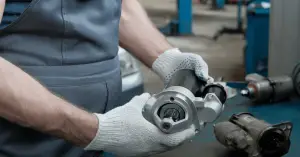
This will be dependent on the vehicle that you own. In most cases, it’ll cost between $600-$1,000 to have the starter motor replaced. So, it is a very serious expense.
You might be able to replace the starter motor yourself to save a little bit of money. The job isn’t too difficult, and the starter motor is fairly accessible. Although, this isn’t really something we would recommend unless you have experience.
How Much Does it Cost To Replace an Engine’s Flywheel?
Technically, a flywheel is a far, far cheaper component than a starter motor. However, it costs a lot more to replace a flywheel. In fact, you’re looking at around $1,000 to replace the flywheel.
This is because the flywheel is not easily accessible. The only way to access this component is by removing the engine and fiddling about with a few parts. It is a job that could easily take several hours for a skilled mechanic.
Obviously, this is a very complex job. It is not something that you should be fixing yourself. We can’t stress enough how difficult it is to access the flywheel. If you have never done serious work on an engine before, then you will mess up, and, trust us, it is going to be even more expensive to get the problem dealt with then.
Thankfully, the chances of the flywheel being the issue are very, very low. Most of the time, it is going to be the starter motor. So, if you go to a garage, that’ll be the first thing they look at. Just let them know what you did with your vehicle, and they’ll know exactly what they should be looking for.
Final Thoughts
If you attempt to start your vehicle with the engine already running, you’ll hear a loud grinding sound. This is because the gear of the starter motor will hit the moving flywheel. In most cases, there won’t be any damage. However, if you keep doing it, eventually either the starter motor or the flywheel will break. You’re looking at $600-$1,000+ to get the problem fixed.
Frequently Asked Questions
What Happens If You Turn Car on Twice?
You’ll hear a loud grinding sound as the starter motor’s gears hit the flywheel. In rare cases, you could damage either the starter motor or the flywheel. These will be costly repairs.
How Do I Know If I Ruined My Starter Motor’s Gear?
If your starter motor is no longer engaging with the motor’s flywheel, your vehicle won’t start. This may require a complete replacement of your vehicle’s starter motor.
Can I Replace a Broken Starter Motor Myself?
You can, but it is a complicated job. If you damage your starter motor, we recommend that you visit your local garage. It will cost several hundred dollars to get fixed.


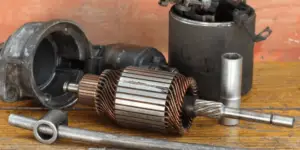
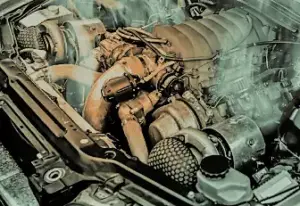
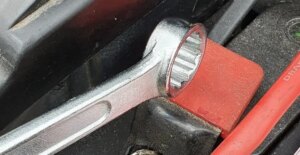
![Car Won't Start In The Sun? [How To Get It Going] Hot-thermometer](https://carzaza.com/wp-content/uploads/2023/12/Hot-thermometer-300x150.png)
